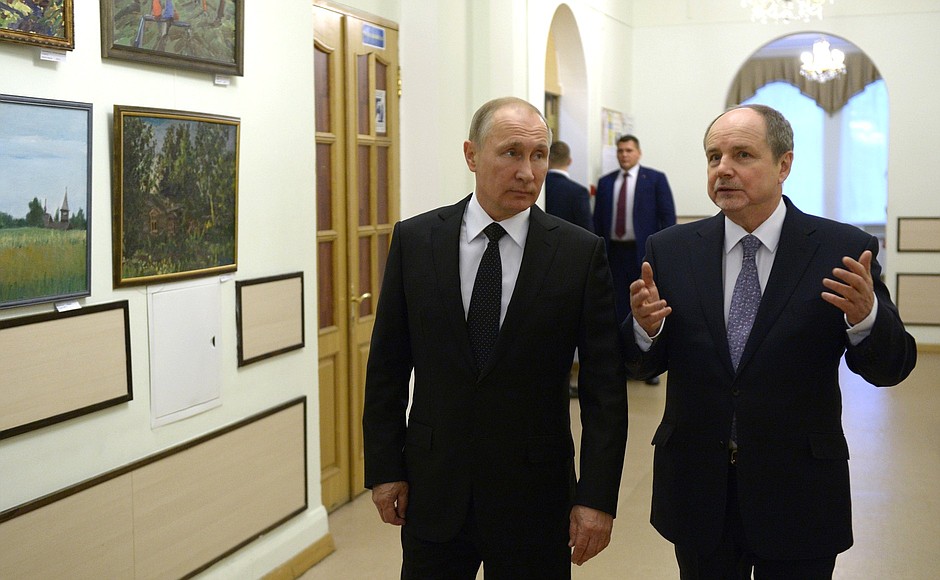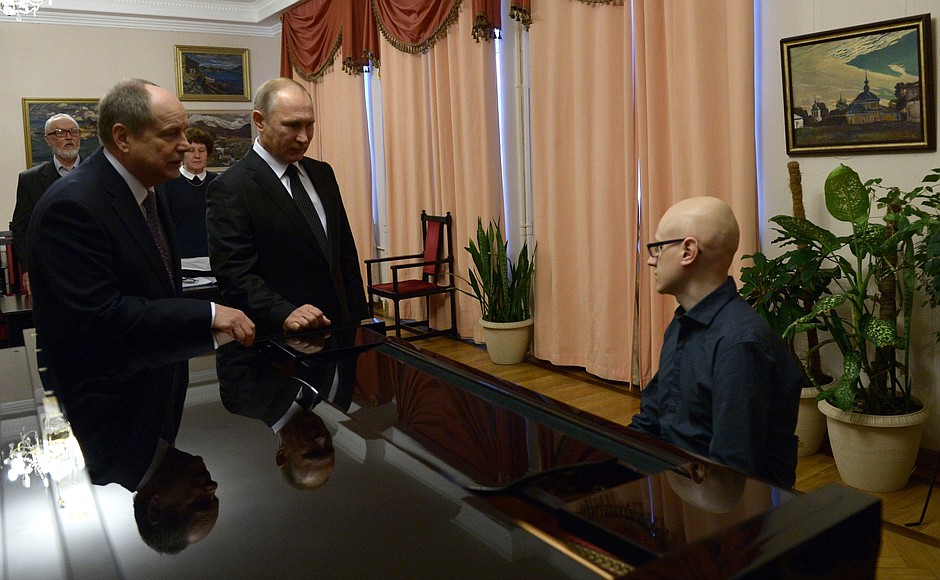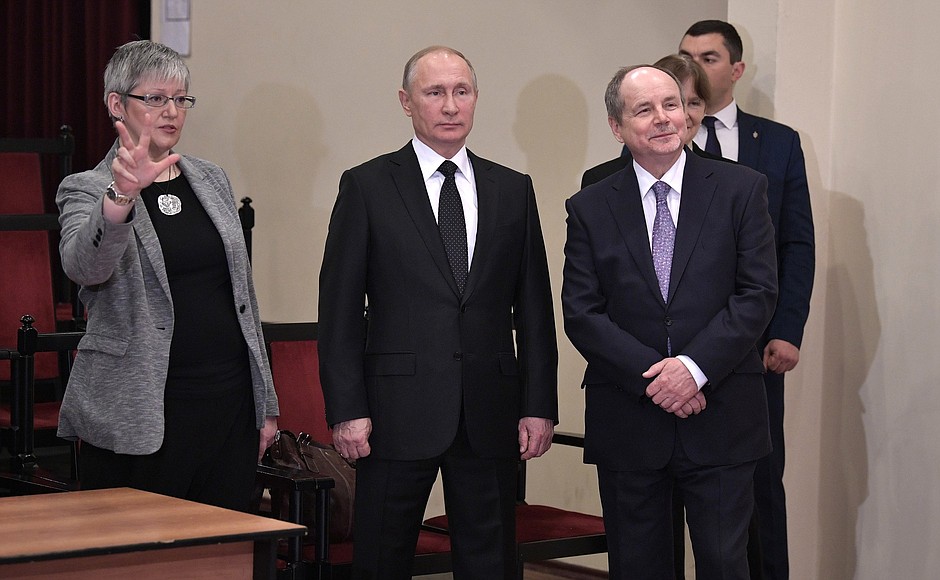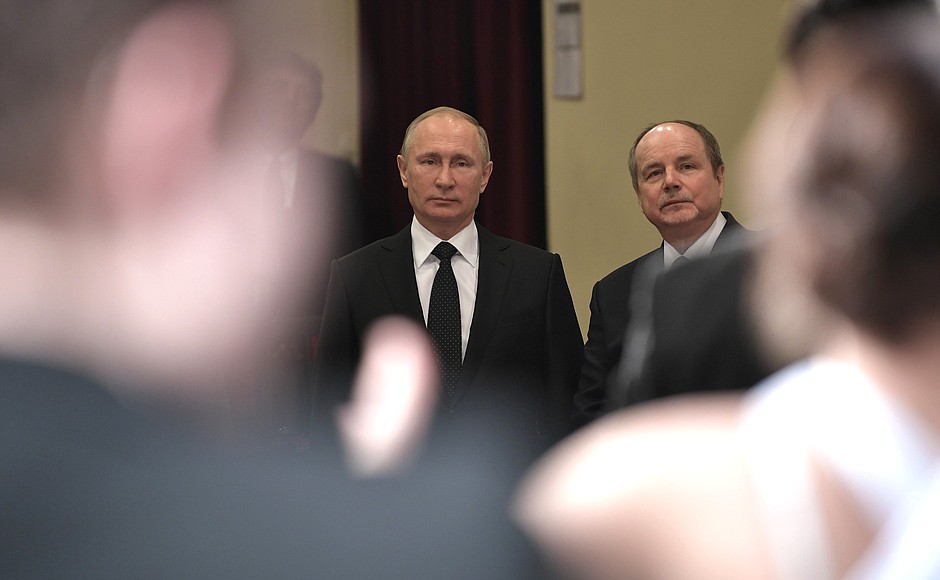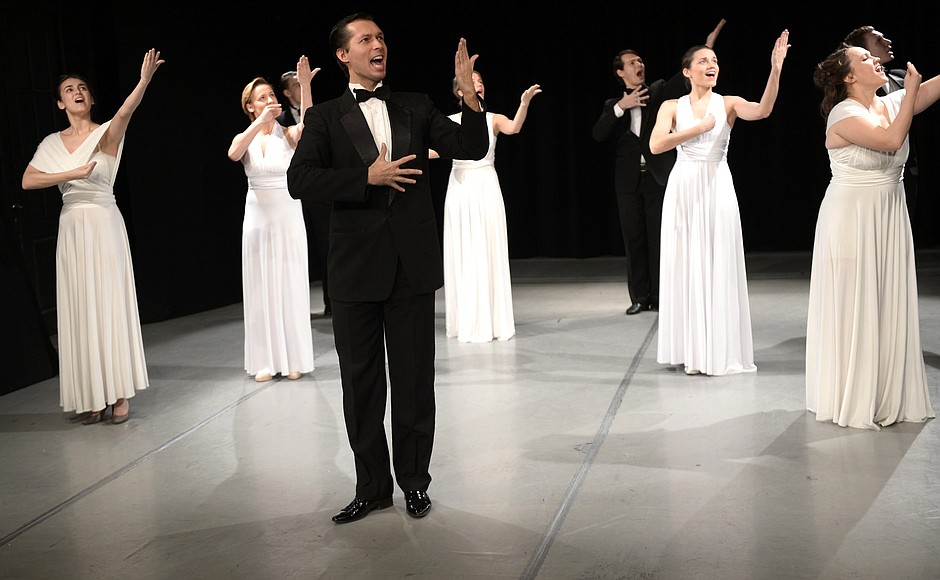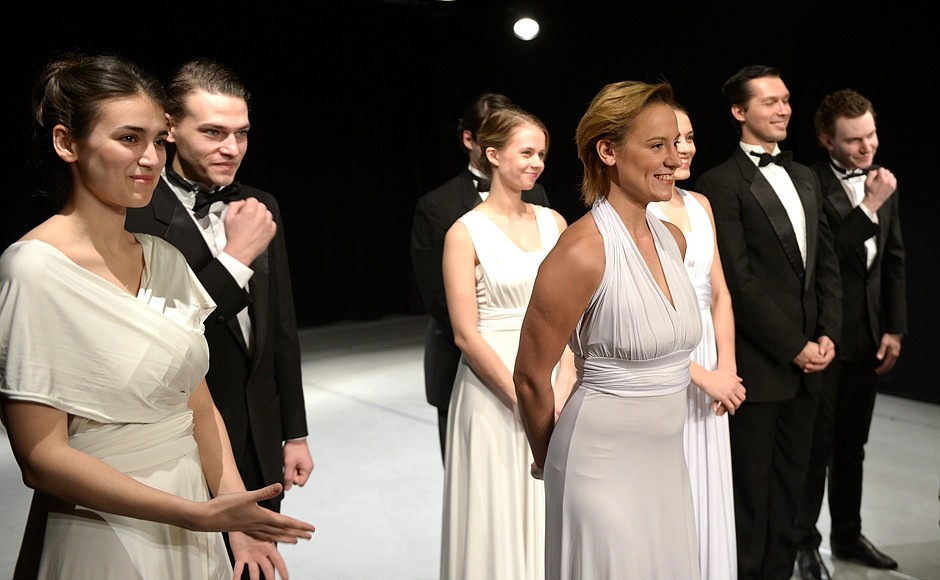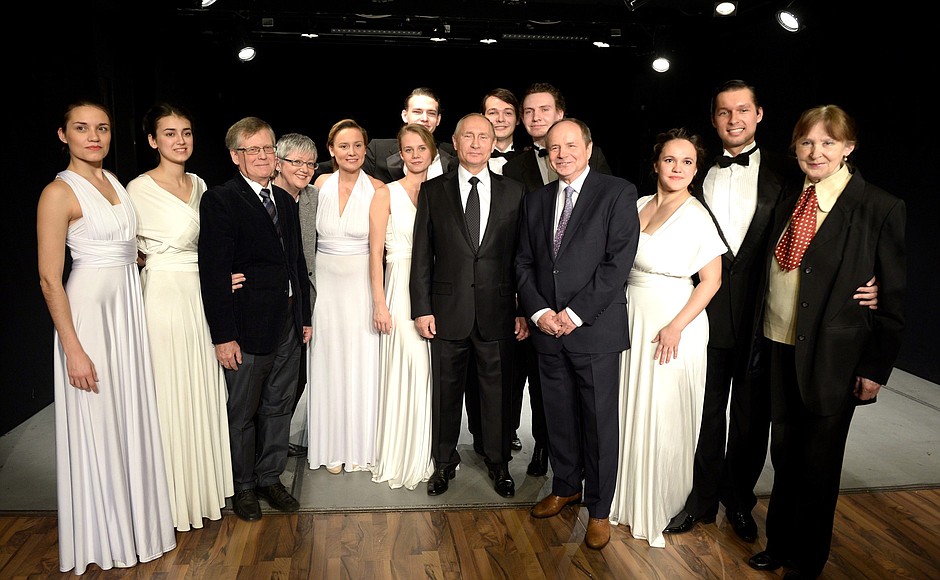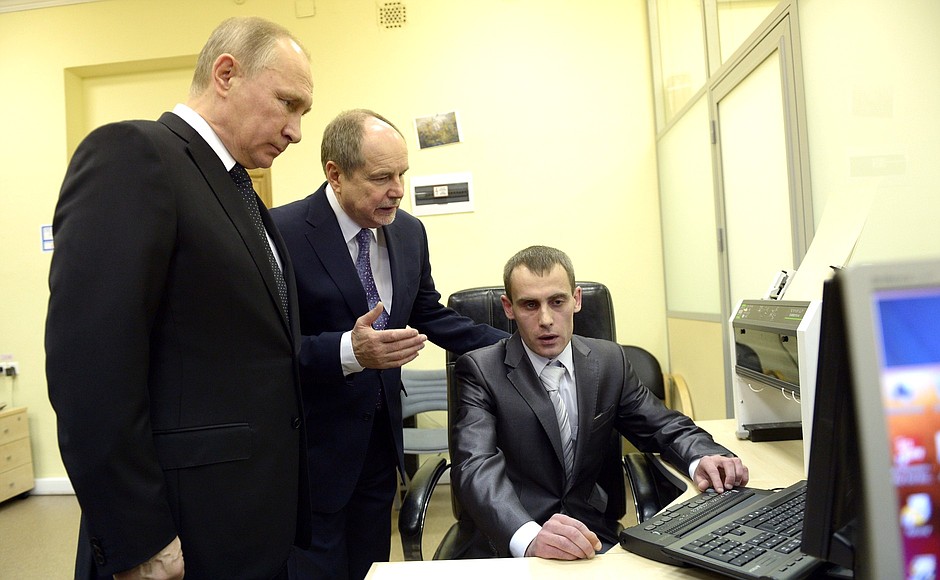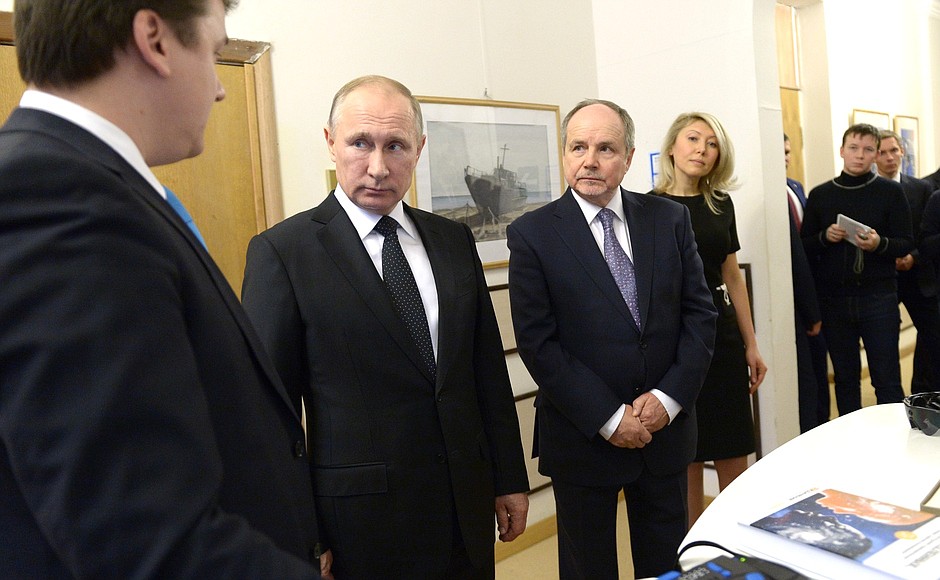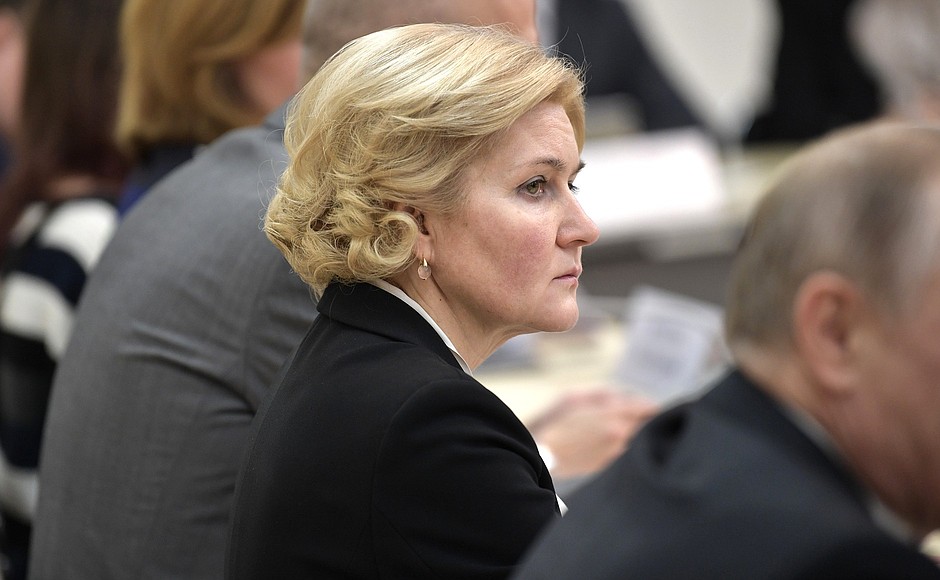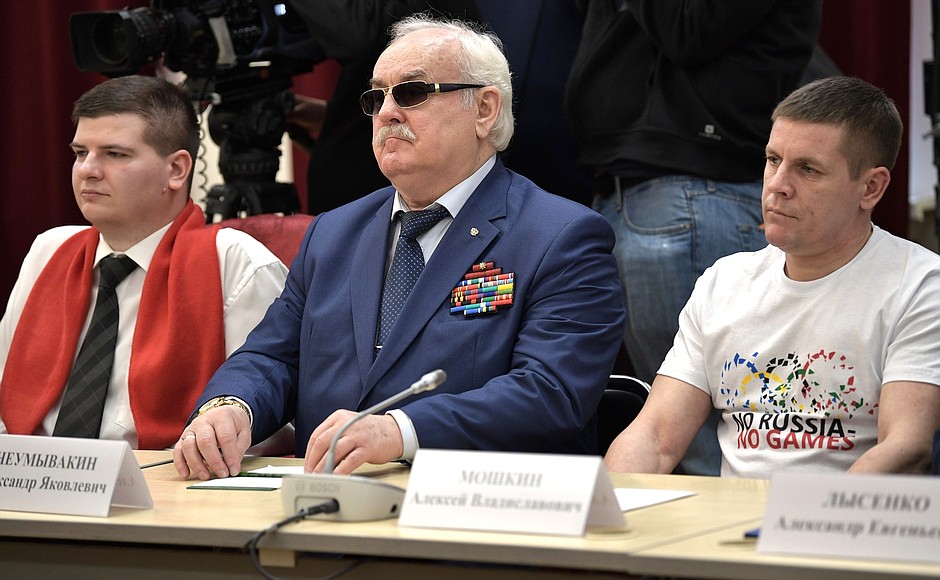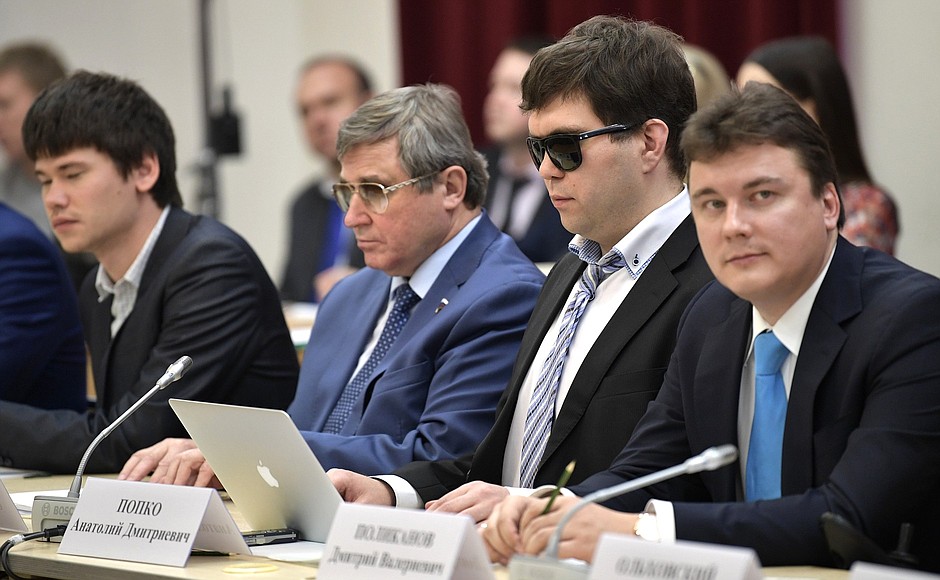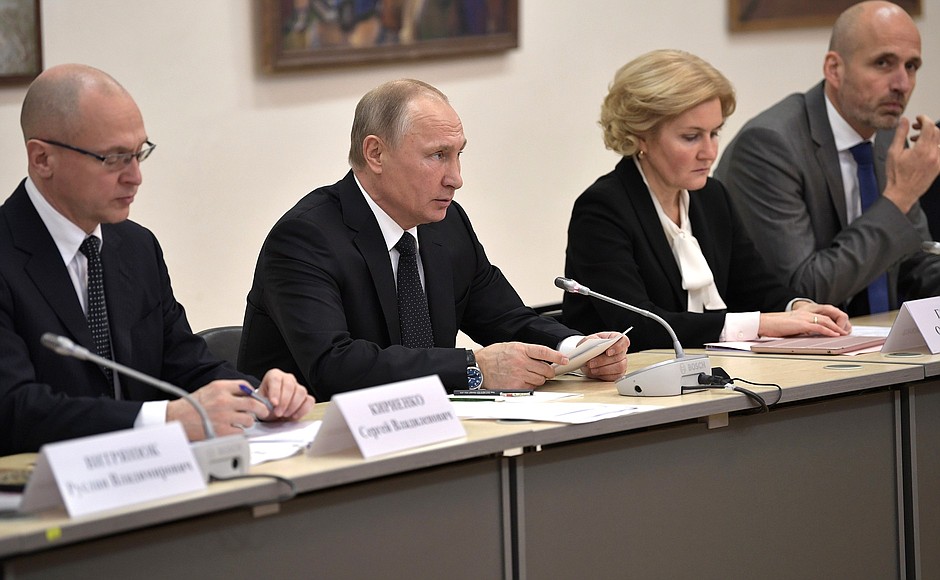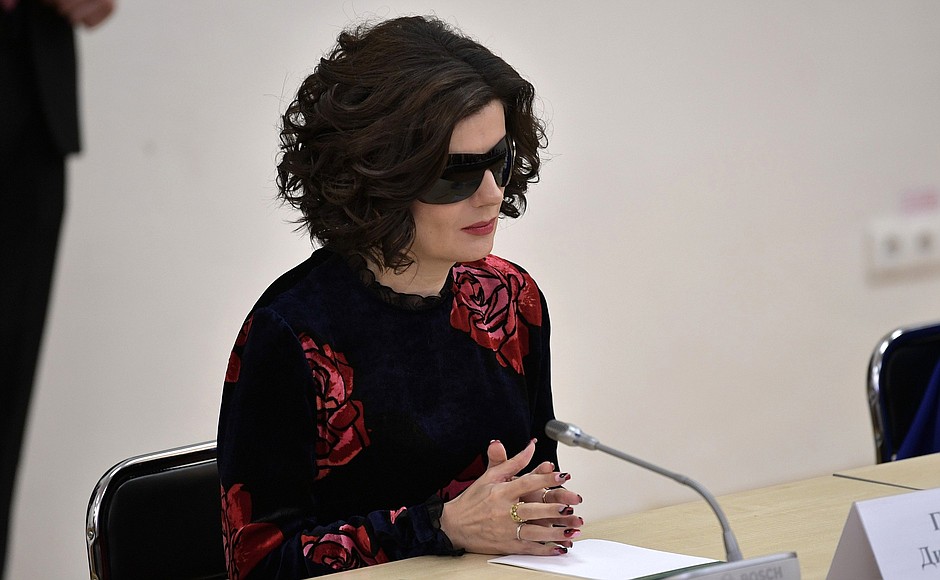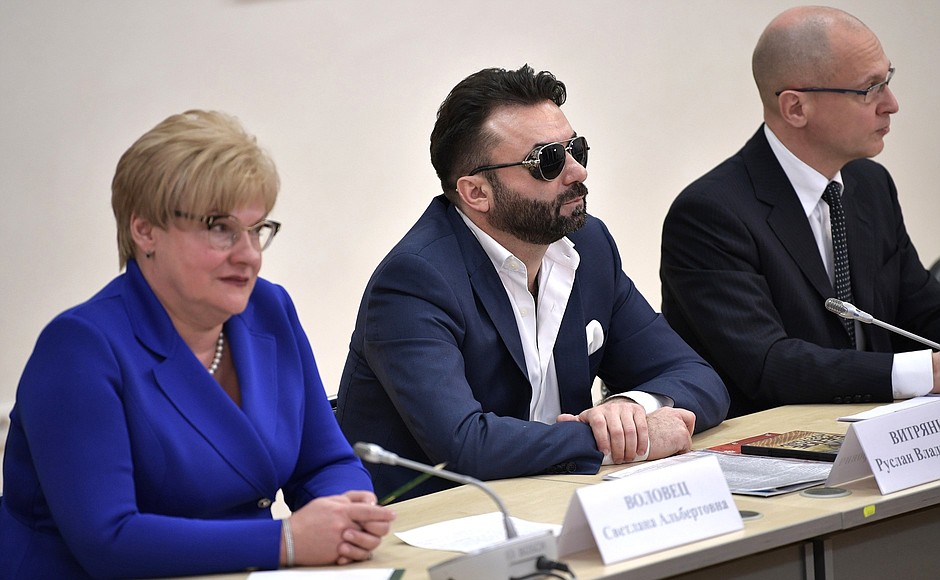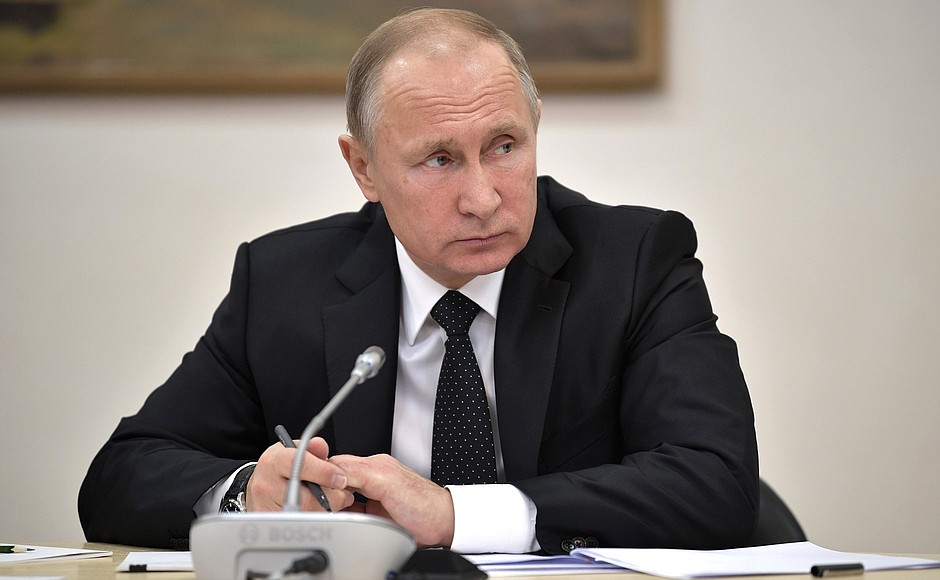Vladimir Putin visited a music class, where a visually challenged student performed on the piano Franz Liszt’s Hungarian Rhapsody No. 10 for the President. An exhibition was also organised in the same room, showing landscapes from the Moscow Region and Russia’s Far East.
The President also visited a drama class, where he watched as the students rehearsed the Academy’s anthem, the Melpomene song, in sign language.
In addition, the President toured the opera singing and computer classes, and after that saw an exhibition of devices for the hearing and visually impaired.
After the visit to the Academy, Vladimir Putin met with people with disabilities and representatives of the relevant NGOs and professional associations that work with people with disabilities, as well as Paralympic athletes and participants in the Abilympics competition.
The history of the Russian State Academy of Arts for Special Needs Students can be traced back to 1990, when the All-Union Centre for Rehabilitation Through Creativity was established in the USSR with the specialised art institute as one of its affiliates. In 2013, the establishment obtained state accreditation and was awarded the status of an academy.
The Academy has three departments: music, theatre and fine art. A theatre for people with hearing impairments produces its plays in the Academy. There is also an inclusive opera theatre, while the music department has a folk instrument band, a chamber orchestra and a number of other ensembles.
* * *
President of Russia Vladimir Putin: Good afternoon, friends. My greetings to you all.
Before we turn to the topic of our meeting, I would like to note that today Russia marks the national Volunteer Day for the very first time. I would like to thank all the participants in this movement for their efforts.
I think that this is the right place for a statement of this kind, since it is not uncommon for volunteers to help people with disabilities, and quite often people with disabilities themselves take on the role of volunteers.
People of this kind not only show how to live a productive life, but also help others move in the same direction. I think that they deserve special attention and respect.
Overall, I would like to say that people with disabilities make a significant contribution to the economy, research and culture, and are active participants in public and political affairs. They achieve great sports results, and win in prestigious international competitions. As I have already said, in all these spheres they show us what any human being is capable of.
Taking this opportunity, I would like to congratulate whole-heartedly the winners and all the participants in the recent national Abilympics skills competition for persons with disabilities. They demonstrated outstanding talent and training, determination and character. Way to go!
As you know, much has been done in the past years to create a comfortable barrier-free environment for people with disabilities.
Much attention is being given to making social and transport facilities more accessible for such people. One fifth of our schools satisfy inclusive education requirements. We will certainly talk about this later, and those present will share their criticisms and proposals regarding what and how we should do in this sphere.
We are developing and applying unique teaching methods to help people with disabilities find their own voices and reach their potential. These methods are being widely used here, at the Russian State Academy of Arts for Special Needs Students.
Frankly, it was a pleasure watching the people who work here. I think it is a unique educational institution without a par in the world.
I would also like to say the following. It is important that public attitude to the problems of people with disabilities is changing; it is becoming more mature, humane and empathic. People condemn and denounce violations of rights of people with disabilities or even lack of consideration for them. Officials at all levels must look beyond the programmes and plans to see the problems of concrete people who need our help.
Of course, there is still much that must be changed or done before we move ahead in the area of the sociomedical examination, employment and rehabilitation, as well as early assistance for children with disabilities. There are many unresolved problems here; we will certainly deal with them and make progress in these areas.
I would like to point out that success is possible only through joint and collective actions. We must join the forces of the bodies of authority, public organisations, as well as volunteers, who I mentioned at the beginning. Only if we do this will we create really equal conditions for everyone.
Let us discuss these issues.
<…>
